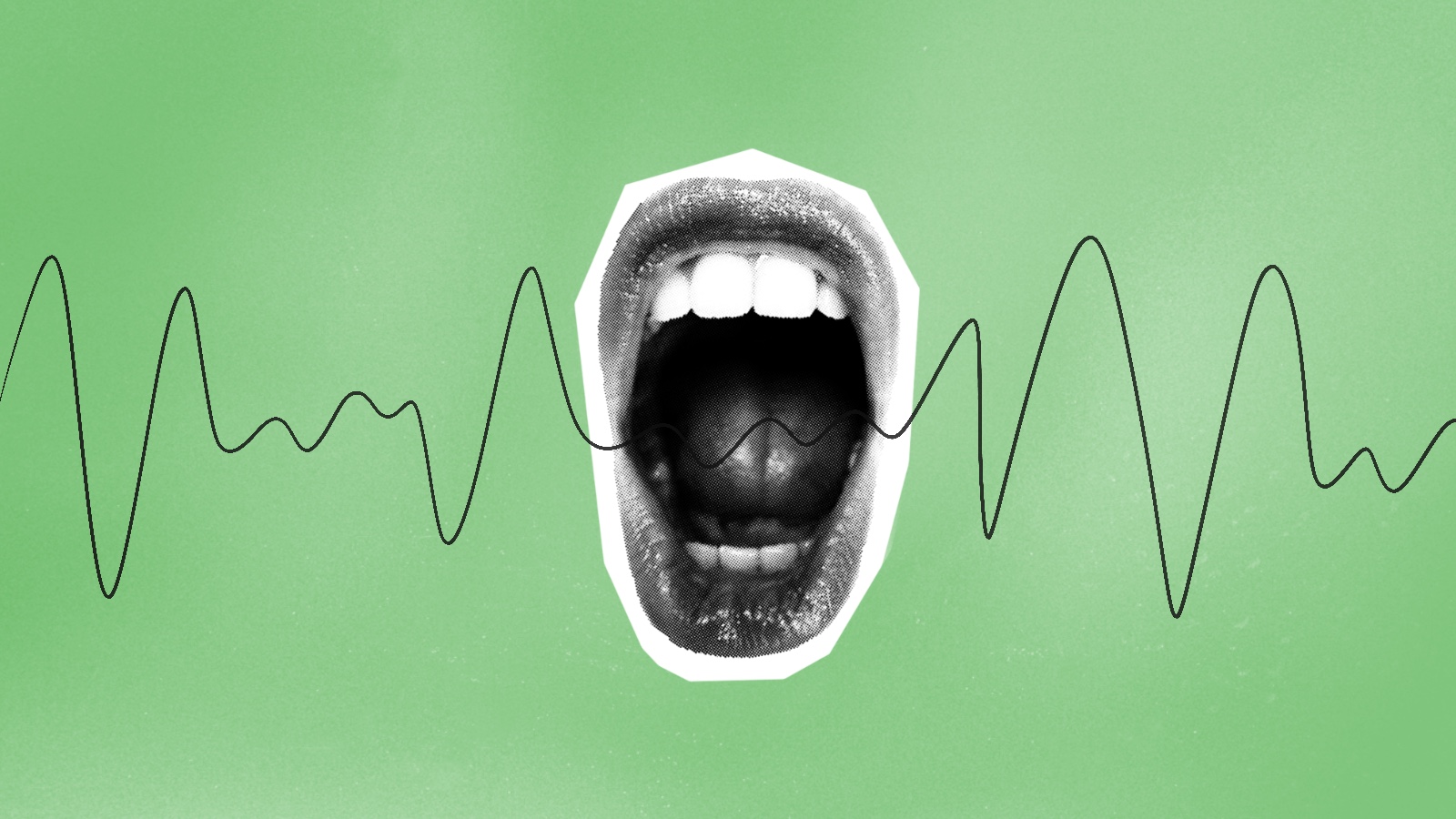The “McGurk effect” is a mind-blowing auditory illusion—and you can listen to it here

- We do not access the world directly. Everything we know comes to us mediated by our senses.
- In many cases of mistaken perception, we can self-correct. But the McGurk effect is a curious example of how, in some cases, doing so is nearly impossible.
- What grounds do we have for trusting our senses when they are biologically designed to fool us?
Imagine you were locked in a dark room for a very long time with no sound, no light, and not the slightest hint of what might be happening outside of your room. Every so often, a man called McGurk would come into the room and tell you what’s going on in the outside world.
“It’s raining outside,” McGurk says. You nod.
“Your wife says she loves you,” he tells you. That’s nice of her, you think. A few days pass.
“The moon is as big as my thumb,” the stranger says when he returns. Err…Okay. That’s new.
“Pencils bend when they’re placed in water,” McGurk says. Well, that’s certainly not right.
On and on it goes. McGurk usually tells you reasonable things — boring and commonplace, even. But, very occasionally, he tells you something really odd: the unbelievable, the ridiculous, or the patently untrue.
The question is, would you trust McGurk? How long would this have to go on for before you started to doubt his honesty? What kind of success rate would McGurk have to have before you deemed him reliable or not.
This is the philosophical problem of perception. A phenomenon known as the McGurk effect reveals just how pernicious a problem it really is.
‘Scuse me while I kiss this guy
Everything we know about the world is mediated by our senses. Our senses are the messenger or relay station by which we access everything around us. In the opening thought experiment, McGurk plays the role of our eyes and ears. In real life, too, we do not have direct acquaintance with the world, but rather we depend on our senses to paint an accurate picture of the world. And how well do they do?
Not very well. Our traitorous senses will lie to us on a near-daily basis. Place your thumb up in front of you and it will be as big as a building or larger than someone’s head. Or, in an example favored by philosophers, when you put a stick into water, it will appear bent or warped. Our senses are deceitful little organs of fallibility. And yet, in these examples, we know that our perceptions are wrong. We use our intelligence and experience to correct what our senses wrongfully tell us. We have the ideas of perspective and refraction to account for the shortcomings of our eyes.
But the issue is not so easily dealt with. There are many moments in our lives when we are unknowingly duped by what we see or hear. It might be many days or weeks later that we realize our mistake. We might never realize at all. Suppose that the dog you saw run by your house earlier was actually a fox. Or maybe the keys you grabbed from the table earlier, thinking they were yours, actually belonged to your partner. It might be that you suppose Jimmy Hendrix’s Purple Haze lyric is “Excuse me while I kiss this guy” instead of “Excuse me while I kiss the sky.” All of these interpretations are justified by the weight of your senses. All are wrong.
One of the most fascinating cases of our senses deceiving us is known as the McGurk effect.
“Bah” is not “gah“
The McGurk effect is a curious phenomenon that emerges from confusion between our visual and auditory perceptions. It was first recorded in the 1970s by British cognitive psychologists Harry McGurk and John MacDonald. They observed it by accident after a confusing incident they experienced while working with a technician while dubbing phonemes (speech sounds) onto a video.
The McGurk effect is produced when you have a video of a speaker mouthing one phoneme and then you dub over a different phoneme altogether. In this case, the speaker makes the lip movements of “gah, gah, gah,” but the sound “bah, bah, bah” is the substituted in. Oddly, what happens is that you will hear the phoneme “dah, dah, dah.” This is the peculiar result of a dissonance in your perceptions. Your eyes are expecting a certain noise, but your ears provide another. So, with a cartoonish whirring of gears, the brain implodes and produces a third sound — even though it was never actually included in the audio track.
The doubly strange thing about the McGurk effect is that it is pretty resistant to correction. That is to say, even knowing that the McGurk effect is a thing won’t stop you from hearing the wrong sound. Try it yourself.
Never trust a liar
As philosophers have suspected, and neuroscientists prove again and again, our brain constructs the world around us. It paints in the details that we do not see. It assumes, invents, hides, alters, and ignores vast swathes of the world around us. Our eyes only actually have a tiny area of focus; the rest is peripheral or disregarded altogether. If this focus were any greater, the sheer quantity of visual sensory input would require a far larger brain than our skulls can house. So, it makes sense for the brain to be a little loose with the details. The McGurk effect is the brain doing what is has to.
The result is that our senses are structurally designed to dupe us a bit. The problem with this was described by the French philosopher René Descartes, who wrote, “It is prudent never to trust wholly those who have deceived us even once.”
Our senses are serial liars. So, how seriously ought we to rely on them? Some philosophers, namely the Greek skeptics, concluded that we shouldn’t trust our senses. Instead, we should treat everything with a pinch of, “well, that might be the case.” In the Advaita school of Hindu Vedanta, the world is referred to as “maya,” or illusion. In many Buddhist and Hindu traditions, it is a given that the world is a lie, and our senses no guarantor of truth.
Of course, there’s little we can do about this. There’s no way to live without our senses, and no alternative way to access the world. In many cases, education and experience allows us to recognize when our eyes or ears deceive us. In many others, we haven’t a hope to tell true from false. But, it is all we have — the biological and evolutionary survival heuristic of the brain.
And so, as long as our understanding remains locked in its dark, cloistered tower, we’ll have to take whatever it is the stranger tells us.
Jonny Thomson teaches philosophy in Oxford. He runs a popular Instagram account called Mini Philosophy (@philosophyminis). His first book is Mini Philosophy: A Small Book of Big Ideas.





